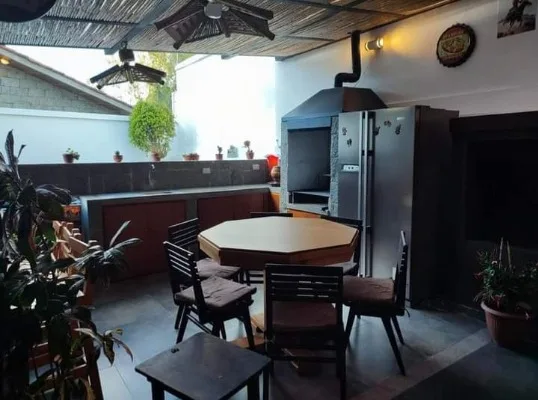Leaked documents allegedly show that the Ecuador intelligence service spied on opponents of Yasuni National Park oil drilling plan
By John Vidal
Ecuadorian spies may have broken the law by obtaining personal information on MPs, environmentalists, indigenous groups, human rights activists, academics and political opponents of president Rafael Correa who opposed the exploitation of oil from an Amazonian wilderness, according to leaked papers.

A protester at an Yasuní anti-oil drilling rally in Quito. Credit: El Comercio
Nearly 200 pages of internal documents that appear to be from Ecuador’s spy agency, the Secretaría Nacional de Inteligencia, seen by the Guardian, show that information was collected between 2010 and 2013 about bank accounts, debts, the value of people’s cars, foreign travel and partners.
The documents, marked secret, include emails, photographs taken at rallies and public meetings, aerial photos of demonstrations and the suspected political and financial links between different groups and individuals. There are also attempts to trace the foreign sources of finance for NGOs and indigenous organisations.
Ecuador’s proposal to leave an estimated 846m barrels of oil in the ground under the Ishpingo-Tambococha-Tiputini (ITT) area of the Yasuni national park in the Amazonian rainforest and ask the world to compensate it with half its monetary value was hailed as a revolutionary new idea when it was agreed by president Correa in 2007.
The documents suggest that the spies were targeting political groups and individuals seeking to conserve the forest, even though Correa and the government were officially in favour of the plan to keep the oil in the ground, along with most Ecuadorians.
People investigated included Alberto Acosta, the former oil minister who, with others, had proposed the idea of leaving the Yasuni oil in the ground in 2006, following the Chevron Texaco pollution disasters in the northern Amazon and indigenous peoples’ successful resistance to oil extraction in the Amazonian community of Sarayaku in the late 1990s.

Anti-drilling protesters block a Quito street.
According to Acosta and other Ecuadorian academics, 40 years of oil exploitation in Ecuador’s Amazon region had led to extreme poverty and inequality which demanded a radical new approach to economics and fossil fuels.
But when countries only pledged about $300m (£190m) by August 2013, Correa reversed his decision, saying the estimated $7bn that the country could eventually earn from the Yasuni oil was needed to alleviate poverty.
This prompted mass demonstrations, the formation of a powerful grassroots movement called Yasunidos and a hotly-disputed petition seeking a referendum. Correa was accused of having always intended to extract the Yasuni oil and to have pursued a secret deal with a Chinese oil company.
According to presentations reproduced in the documents, the Yasuni incident threatened Ecuador’s sovereignty because the keep it in the ground campaign undermined the state’s authority to act.
The documents said that environmentalists wanted to keep indigenous peoples in poverty without access to basic services, health and education and that unnamed multinational businesses were seeking to seize power.
“In future, the [multinationals] plan military intervention in the Amazon basin, privatising these territories and exercising a strategy of control,” says one document.
The disclosure of the documents is embarrassing for Correa because, according to leading Quito lawyer Ramiro Avila, under Ecuadorian law personal information is strictly protected from the state and public money cannot be used against the government’s political opponents.
“We have the right to privacy under the constitution. The only way that government can know about the private affairs of a citizen is under the orders of a judge or if they are searching for a crime. That is not the situation here. No authorisation appears to have been given,” said Avila .
The foreign office had not responded to the Guardian by the time of publication but Juan Falconí Puig, Ecuador’s ambassador to the UK, questioned the authenticity of the documents and whether they could be traced back to the Ecuadorian Intelligence Secretariat. “The problem is to make sure they are authentic,” he said.
Several officials of the secretaría are named as having requested personal information on individuals.
According to the documents, surveillance was carried out on individuals including Pedro Delgado, a cousin of Correa and the former president of the central bank, as well as leaders of leftwing and indigenous political parties. Social and environment groups including Ecuarunari, Conaie, Pachacutik, and the Yasunidos were targeted along with international ecology groups Amazon Watch, Oilwatch and Fundación Pachamama.
The documents show a pattern of targeting Correa’s intellectual and political opponents in the media, indigenous movements and parliament. One man considered dangerous by the state is Clever Jimenez who opposed oil exploitation and at the time the report was written had fled the capital city.
According to the documents, the “hidden” interests of Ecuador’s Communist party is to destabilise government, organise society and take power by way of “revolution”.
The spies also identified a cafe in Miami where an unnamed environmentalist used a computer to collect signatures for a national petition against the exploitation of the Yasuni park.
One Ecuadorian citizen shown to have been under heavy surveillance is Andrés Páez , an MP who compiled a list of 172 insults allegedly made by president Correa against named citizens. According to the papers, Correa described his opponents variously as “garbage”, “wild animals”, “charlatans”, “corrupt”, “fascist”, “horrible fatty”, “immoral”, “stupid lefty”, and “terrorist”.
____________
Credit: The Guardian, www.theguardian.com


















